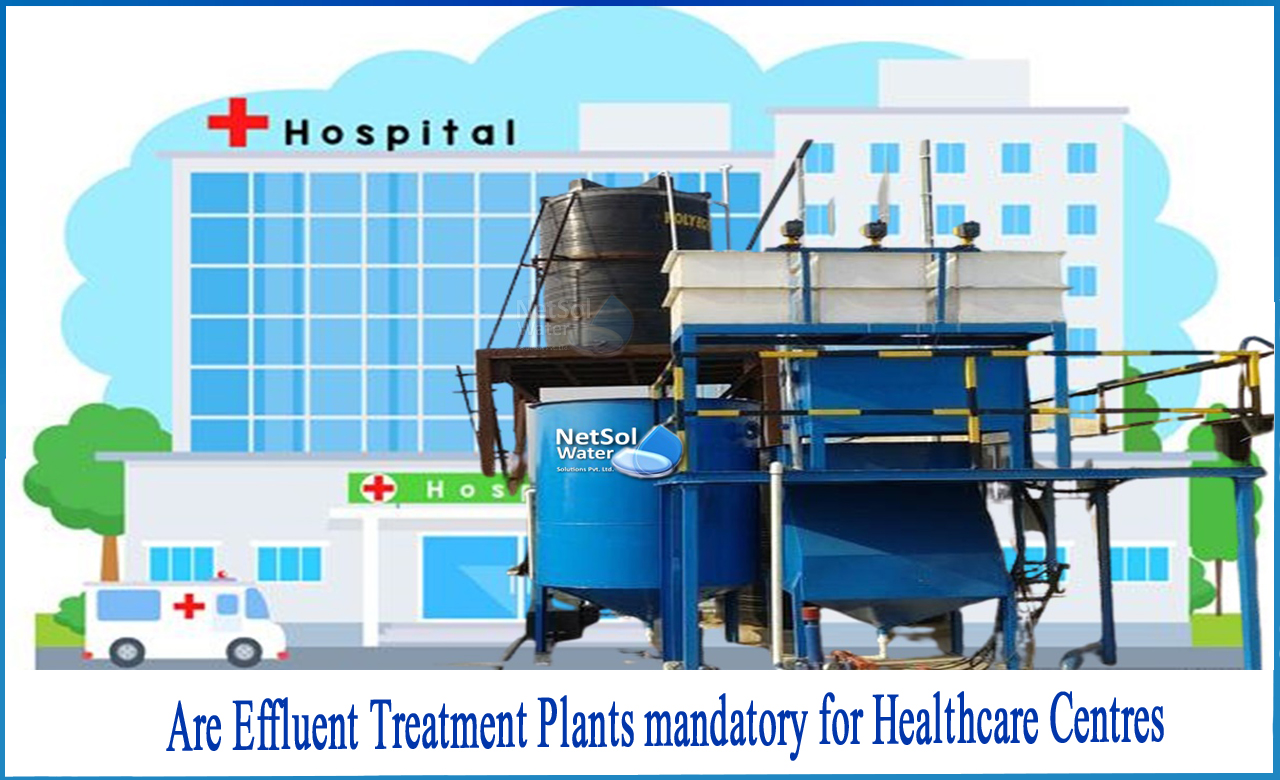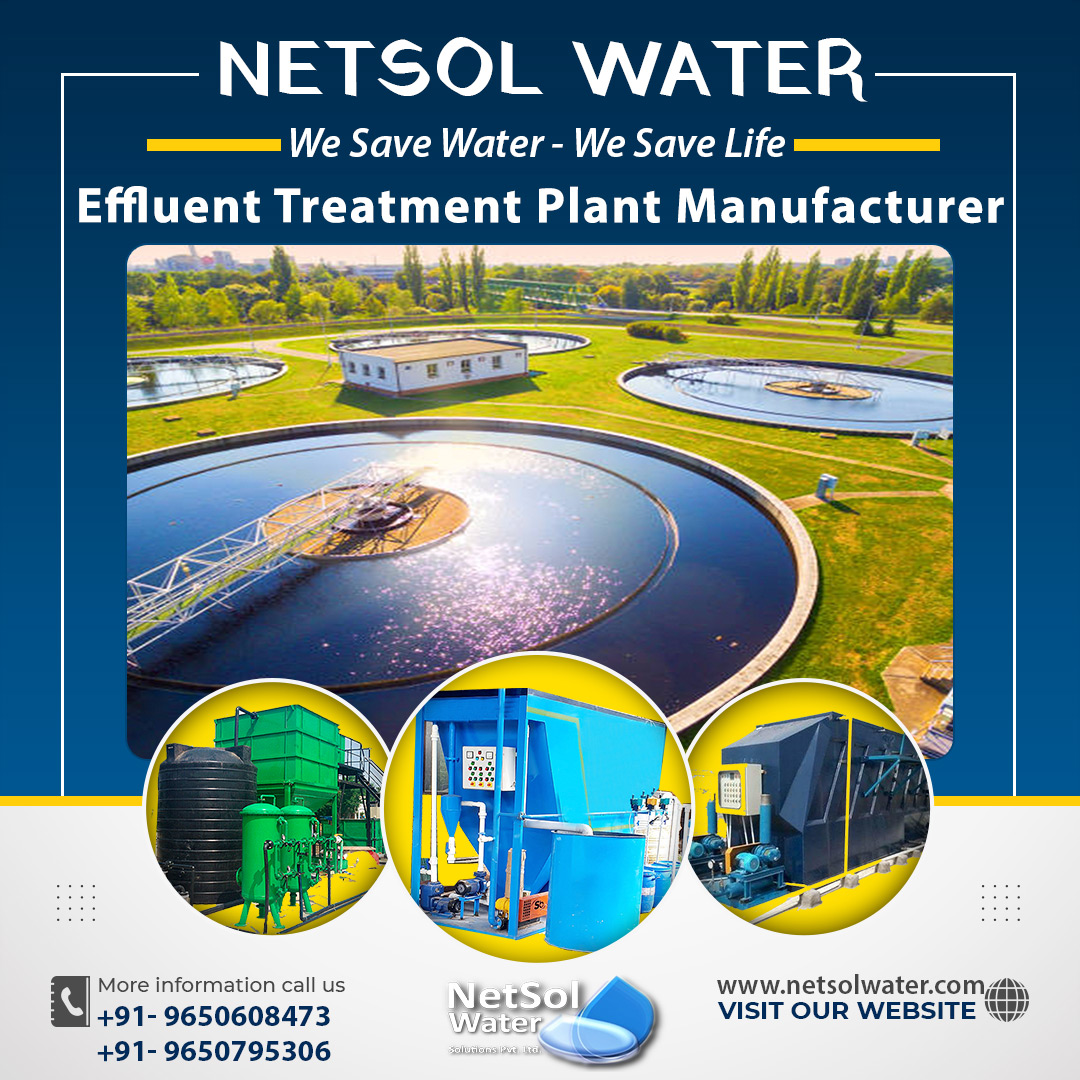Are Effluent Treatment Plants mandatory for Healthcare Centres?
At high concentrations, health care centre effluent may contain a wide range of potentially hazardous components, including microbiological pathogens, radioactive isotopes, disinfectants and sterilant, drugs and their metabolites, chemical compounds, heavy metals, and pharmaceuticals, among others.
Wastewater from health care facilities is classified as follows_
• Blackwater: This is extremely polluted wastewater that contains faeces, urine, food remnants, hazardous chemicals, and other contaminants.
• Greywater: This is low-contamination wastewater that contains residues from bathing, cleaning, laboratory processes, and other activities.
• Stormwater: Rainwater from roofs, grounds, and other areas in health care facilities.
Sources of wastewater in healthcare centres
The following are some of the units that produce wastewater:
• Patient wards and administration
• Laundry and kitchen/canteen
• Operating rooms and intensive care units
• Section on Radiology and Dialysis
• Research facilities and laboratories
What is the purpose of installing an ETP in a health care facility?
The proper treatment of health care centre wastewater is critical.
Why?
Because if the effluent from health care facilities is not adequately treated, it can have a harmful influence on the environment and human health. As a result, selecting an appropriate treatment technology known as an effluent treatment plant for health care centres is essential.
The primary goal of an Effluent Treatment Plant (ETP) is to remove as much suspended solids and organic matter as possible from wastewater before it is discharged back into the environment or re-used for various health care centre functions.When untreated wastewater contaminates groundwater, it poses substantial health hazards by generating serious infectious diseases in those with compromised immune systems.
Various stages employed in an ETP of healthcare centres
Initial Stage: This stage, also known as pre-treatment, is the most important treatment process in the majority of ETPs. It employs bar screens of various shapes and sizes to remove big sized suspended solids such as paper, plastics, metals, dirt, rags, and other similar materials from incoming raw wastewater/sewage. If these materials are not removed, they may cause significant damage to plant equipment. When wastewater enters a grit chamber, it slows the flow of water and thereby removes sand, grit, and sand stones, in a process known as sedimentation.
Primary Stage: It employs physical and chemical initiatives to enhance the quality of wastewater that was not reached in the preceding stage. When wastewater enters a sedimentation tank or primary clarifier, heavier solid particles settle to the bottom of the tank, while lighter particles float to the surface and are skimmed off using a process known as skimming, eliminating 60-65 percent of total suspended solids from liquid wastewater. This stage may include the use of a grit chamber to remove grit. The settled material is referred to as primary sludge, and it is sent to a sludge digester for further processing. Now that the water has been partially cleared, it moves on to the next stage.
Secondary Stage: This is the stage where, through a process known as biological treatment procedures, 80-90 percent of organic matter can be eliminated. The majority of health care centre ETPs use the "activated sludge process," in which liquid wastewater enters an aeration tank where it mixes with air to encourage the growth of bacteria and hence the breakdown of organic materials. When aerated water enters a secondary clarifier, floatable debris is removed while heavier matter settles to the bottom, resulting in "active sludge" or secondary effluent. A portion of the sludge that still includes bacteria will be recirculated back to the aeration tank to speed up the decomposition of organic waste. The remaining bacteria are dealt with separately in the next stage, disinfection.
Tertiary stage: This is the last stage, commonly known as the disinfection stage. This stage eliminates any remaining suspended particles and other contaminants not eliminated in previous stages. The effectiveness is determined by the quality of the treated water. The primary goal of disinfection is to lower the number of germs in wastewater before it is disposed of in the natural environment. To eradicate hazardous substances in wastewater, disinfection technologies use ozone, chlorine, and ultraviolet (UV) radiation. This step is responsible for the removal of nitrogen, phosphorus, and other harmful pollutants and may include reverse osmosis systems too.
What do we offer?
Netsol Water is a renowned producer of water and wastewater treatment plants. Based on client feedback and job quality, we are the most demanding organization in the water industry. We have a reputation for being the top commercial RO plant manufacturer, industrial RO plant manufacturer, sewage treatment plant manufacturer, effluent treatment plant manufacturer, and much more. Aside from that, our USP is 24x7 customer assistance.




